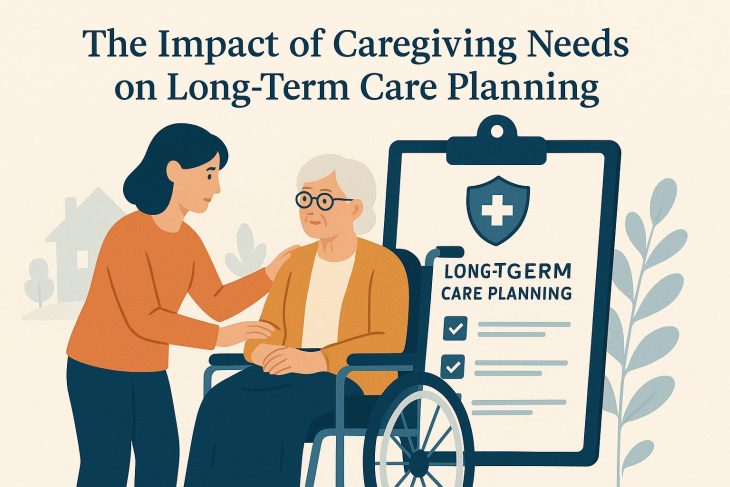
Understanding Caregiving Needs
The decision-making process in long-term care planning is profoundly influenced by the caregiving needs of individuals. Recognizing and understanding these needs is essential for families, healthcare providers, and policymakers. Caregiving encompasses a wide range of activities, from basic assistance with daily activities to specialized medical care.
Types of Caregiving Needs
Caregiving needs can vary widely depending on the individual’s health, age, and specific circumstances. An individual’s particular requirements can significantly influence the type of care and level of expertise required by caregivers. Some typical needs might include:
Personal Care: Caregivers often need to assist with fundamental daily activities that many individuals may take for granted, such as bathing, dressing, and eating. These tasks are crucial for maintaining basic hygiene and ensuring that individuals maintain a sense of dignity and normalcy in their day-to-day lives.
Healthcare Management: In addition to assistance with daily activities, some individuals require help with healthcare management. This aspect of caregiving involves administering medications, managing wound care, and coordinating appointments with healthcare providers. Effective healthcare management can prevent unnecessary hospital admissions and manage chronic health conditions more effectively.
Mobility Support: Many individuals require support with mobility to maintain their independence. This can include helping with movement, whether it means aiding someone as they walk or helping them transfer from beds to wheelchairs or other aids. Mobility support is essential in preventing falls, which are particularly prevalent among the elderly and can lead to significant health complications.
Emotional Support: Beyond physical needs, emotional support is a crucial element of caregiving. Providing companionship and emotional support fosters improved mental well-being. Caregivers play an integral role in creating a supportive environment that can significantly impact a person’s overall quality of life.
Impact on Long-Term Care Planning
Understanding an individual’s caregiving needs is vital in shaping their long-term care plan. The specific needs dictate the necessary type of care and the resources required to provide it. For example, someone managing multiple chronic health conditions may require the comprehensive resources available in a nursing home or skilled nursing facility. In contrast, individuals with less intensive needs might thrive in an at-home care environment with visiting healthcare professionals and aides. Assessing these needs early and comprehensively allows families to make informed decisions, ideally avoiding the stress and disruption that can surface with last-minute arrangements.
Planning for Financial Implications
The financial impact of caregiving is one of the most challenging aspects to navigate. Whether considering in-home care or life in a facility, the associated costs can be significant. Crafting a financial plan involves understanding various funding sources such as insurance, potential government assistance, and personal savings. Exploring options from organizations like longtermcare.gov can provide valuable insights and tools that aid in financial planning. Thoughtful financial preparation ensures sustainability over the long term and helps families avoid financial strain, enabling a focus on the loved one’s care and well-being.
Legal Considerations
In addition to financial planning, legal considerations profoundly impact long-term care arrangements. Addressing matters like power of attorney, living wills, and healthcare directives at the outset is critical. These legal documents safeguard an individual’s preferences and ensure their wishes are faithfully followed if they become unable to make decisions independently. Early legal preparations avert potential disputes among family members and guarantee that care is administered in a manner aligned with the individual’s values and desires.
Family Dynamics and Caregiving
Family dynamics frequently influence caregiving arrangements, with family members often stepping into the role of unpaid caregivers. This situation can introduce complex challenges, such as balancing external work and life commitments with the intense demands of caregiving. Moreover, the emotional and physical strain can be substantial, underscoring the necessity for clear communication among family members. Family meetings and open discussions foster a shared understanding of caregiving responsibilities, helping distribute tasks fairly while addressing everyone’s concerns and needs. This collaborative approach can lighten the emotional or logistical burdens placed on any single family member.
Technology’s Role in Caregiving
Advancements in technology have played a transformative role in alleviating some of the burdens associated with caregiving. Innovations such as telehealth services, home-monitoring systems, and medication tracking apps provide essential tools for caregivers, making their duties more manageable. Moreover, technology enables remote monitoring, allowing caregivers to stay informed about the well-being of the individual in their care, even when geographical distance separates them. By harnessing technological solutions, caregivers can offer more comprehensive support while balancing other aspects of their lives effectively.
The Future of Caregiving
As populations continue to age globally, the demand for caregivers is expected to surge. This growing need highlights the importance of establishing sustainable long-term care solutions. Investments in training more healthcare professionals and creating supportive policies for caregivers are essential steps towards meeting future demands. Policymakers must prioritize initiatives that help caregivers both financially and emotionally, recognizing their crucial role in upholding the dignity and care of the aging and ailing population. Innovative programs and policies can strengthen the caregiving framework, supporting caregivers and ensuring they have the resources necessary to fulfill these vital roles.
Understanding and preparing for caregiving needs involves navigating a complex web of considerations encompassing physical, financial, legal, and emotional aspects. Families and individuals can significantly impact the quality of life for elderly or ailing loved ones by being proactive in their approach. A comprehensive understanding of caregiving needs empowers effective planning, enabling individuals to ensure they provide and receive the highest level of care possible. Through thoughtful consideration, strategic planning, and embracing supportive technologies, caregiving can transform from a stressful challenge into an enriching role that profoundly enhances the lives of carers and those they support.
This article was last updated on: September 2, 2025
